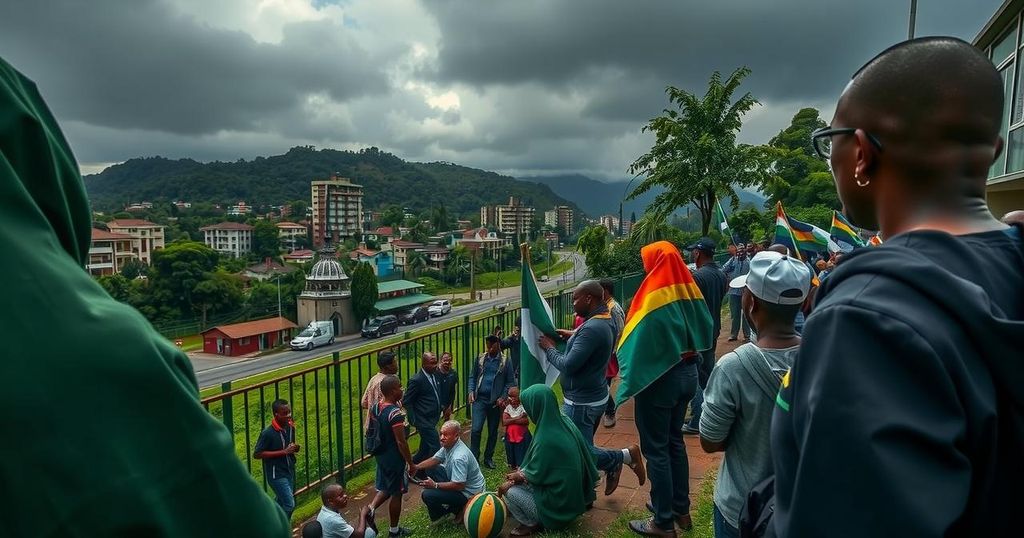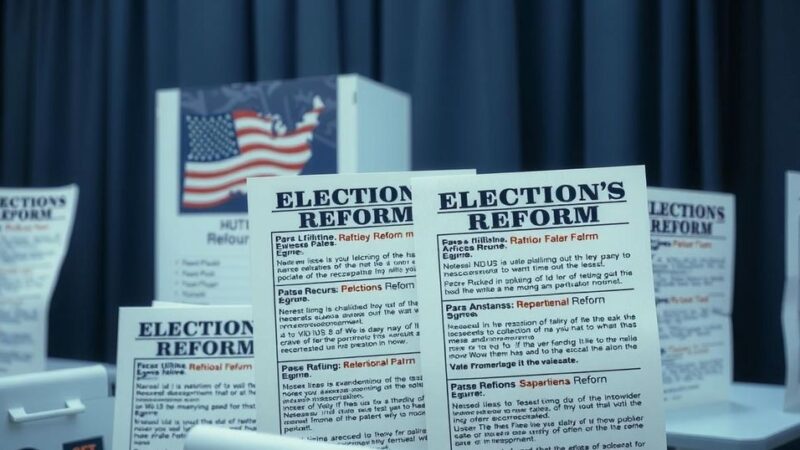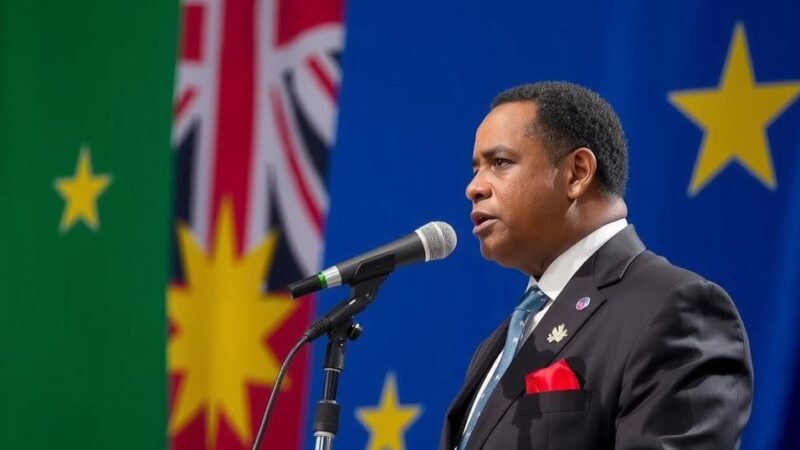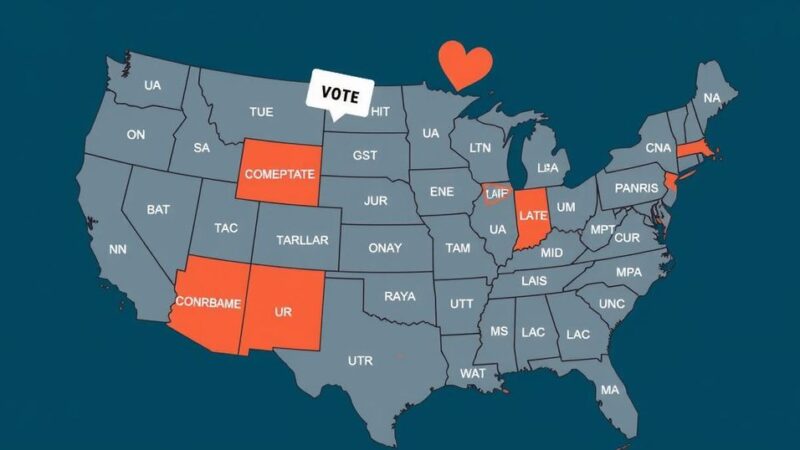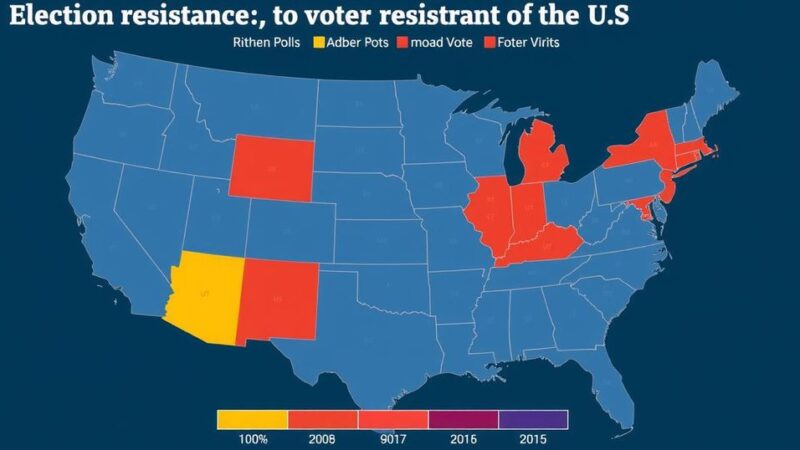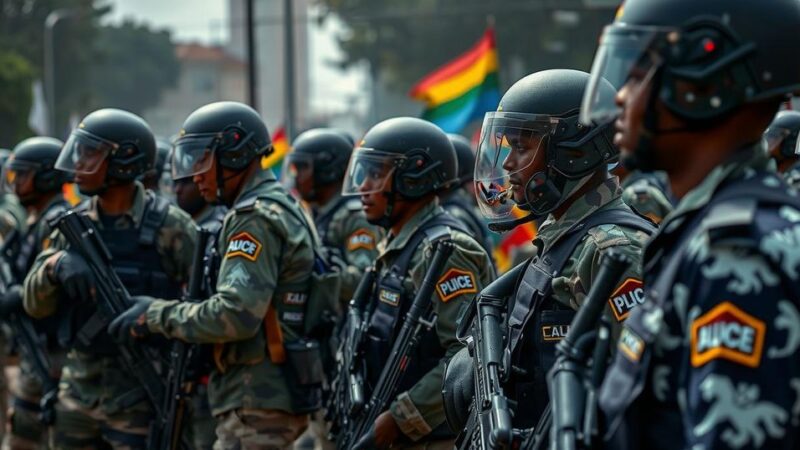The Democratic Republic of Congo faces deep socio-economic issues and widespread insecurity. President Felix Tshisekedi aims to amend the constitution, raising suspicions about intent to alter presidential term limits. This situation echoes past attempts by former leaders to extend power, generating citizen distrust and concern over political direction amid global interest in the country’s mineral wealth.
The Democratic Republic of Congo (DRC) is grappling with severe challenges despite its abundant natural resources. Its citizens endure extreme poverty, with the country ranked among the five poorest globally. Additionally, significant unrest characterizes the eastern regions where multiple armed groups operate, leading to mass displacements and the ever-looming threat of war between states. With over twenty-three million individuals suffering from food insecurity, the nation also confronts a dire public health crisis exacerbated by a Mpox outbreak. President Felix Tshisekedi, who assumed office under controversial circumstances in 2018, has faced criticism for his inadequate response to pressing issues in the DRC. Following a contentious re-election in 2023, he has shifted his focus towards amending the constitution, which he deems “outdated” and claims was imposed by foreign influences in 2005. Tshisekedi aims to create a national commission to draft a new constitution, ostensibly seeking to address modernization and national sovereignty. However, many Congolese citizens suspect that this push for constitutional reform primarily serves to alter presidential term limits, potentially allowing Tshisekedi to extend his tenure. His predecessor, Joseph Kabila, similarly attempted to alter constitutional provisions to prolong his presidency, leading to widespread discontent and eventually paving the way for Tshisekedi’s election. The echoes of such political maneuvering, visible in the tangled histories of the region, signal risks of potential instability. Tshisekedi’s constitutional agenda emerges amid a backdrop of foreign interests vying for the DRC’s rich mineral resources. Consequently, he may lack the impetus to heed local discontent as global powers could prioritize investments in a country rife with governance challenges. Such neglect from external actors would only perpetuate the legacy of foreign exploitation while deepening domestic dissatisfaction among the Congolese people.
The Democratic Republic of Congo is a resource-rich nation facing enormous socio-economic challenges. It is known for high levels of poverty amid vast natural wealth, which contrasts sharply with the reality of its people’s daily lives. The country’s east is plagued by conflict involving numerous militia groups, contributing to significant displacement and insecurity. The government, under Felix Tshisekedi, has been criticized for its handling of national issues, leading to widespread skepticism among citizens regarding political motives, particularly related to potential constitutional changes that could affect the length of presidential terms.
In summary, the Democratic Republic of Congo’s struggle with poverty, insecurity, and food shortages is exacerbated by the government’s focus on constitutional reform, which many see as a thinly veiled attempt to extend presidential power. This political maneuvering has historical precedents, raising concerns about potential instability reminiscent of past regimes. With global powers focused on the country’s resources, Tshisekedi’s administration risks neglecting the voice and welfare of its citizens, who are already dealing with significant hardships.
Original Source: www.africa.com
